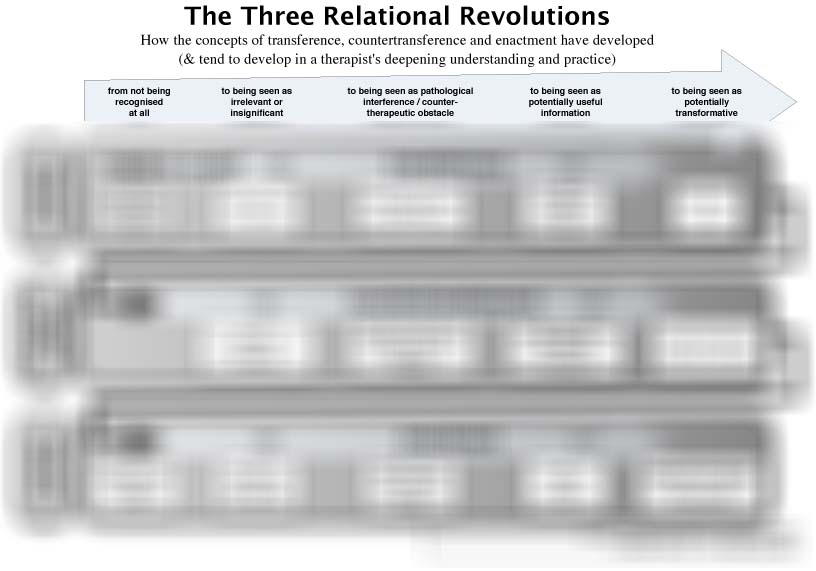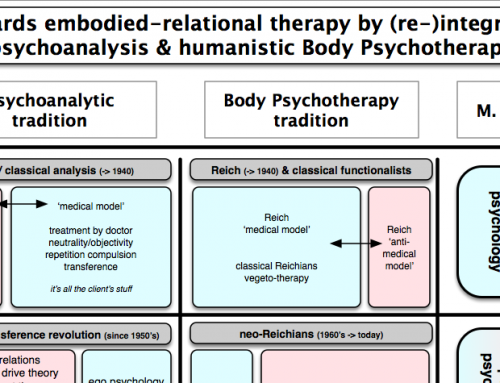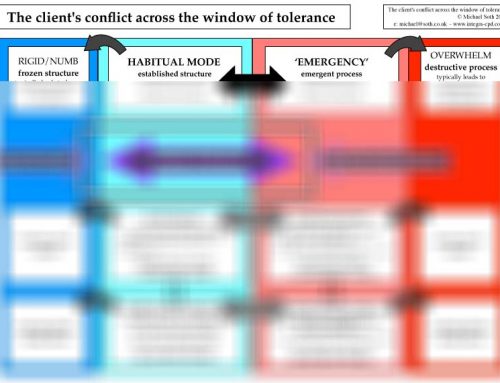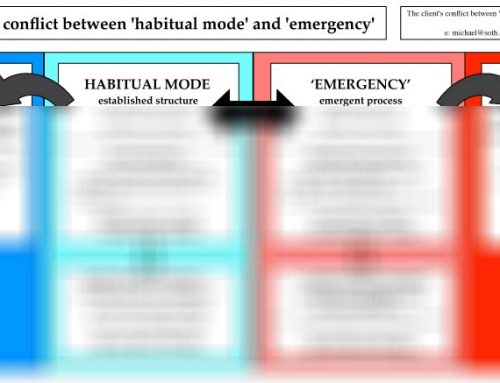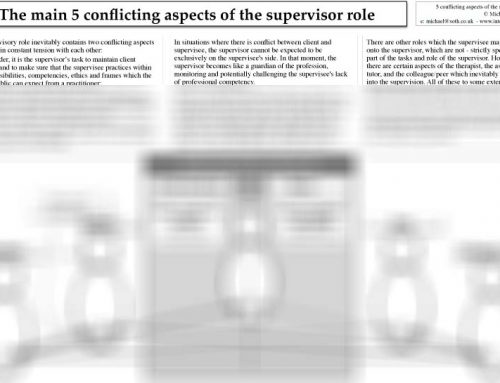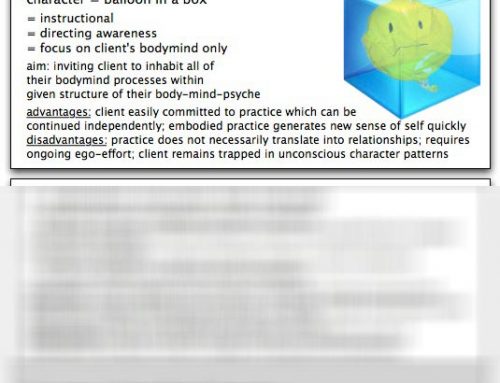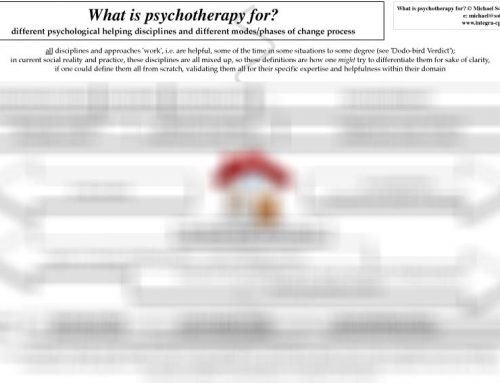Project Description
This handout summarises what I conceive of as the three relational revolutions that have occurred over the last 100 years in psychotherapy. The first was Freud's reframing of the transference from an obstacle to the treatment into the 'royal road' into the depths of the process - this revolutionary step of genius has provided a foundation for the psychoanalytic project since then. But while Freud reframed the transference, he continued to think of the countertransference as exclusively pathological, as the therapist's 'stuff'. This view was challenged in the 1950s by the 'countertransference revolution' (Racker, Heimann, Searles), which began to recognise the therapist's countertransference as another royal road into the process, the therapist's subjective experience being considered as giving information about the client's inner world. But within the psychoanalytic circles who increasingly take these notions for granted (towards the tail end of the 20th century, e.g Casement), enactment is the still seen as pathological and countertherapeutic, as something which the therapist is responsible for vigilantly holding out against. I am proposing that a third relational revolution might occur in relation to the notion of enactment, with it being recognised as another royal road into the transformative depth of the process.
To gain access to the full resource, please log-in if you are a member already (and then re-fresh this page after log-in), or to become a member of the site register here (it's free).

